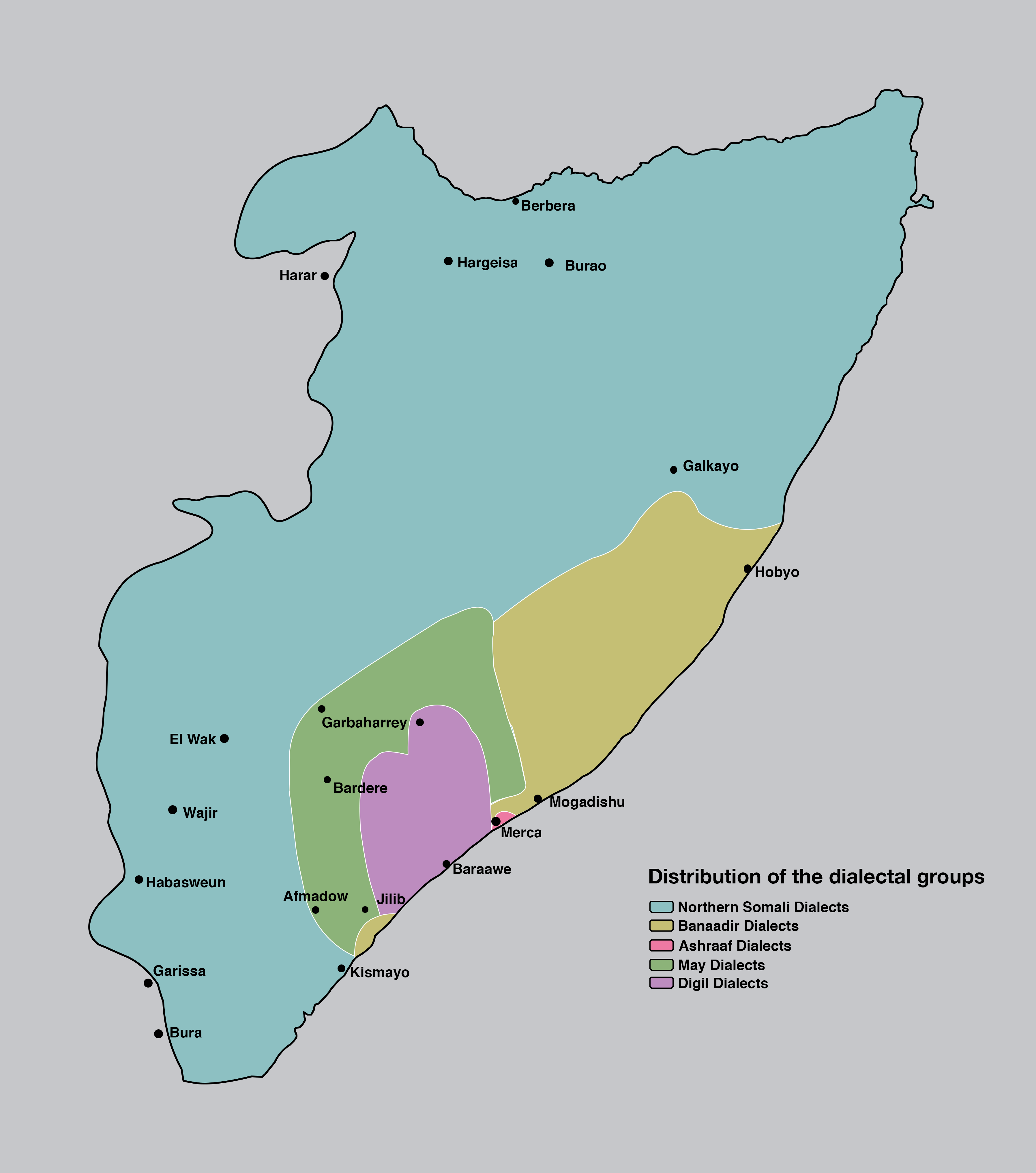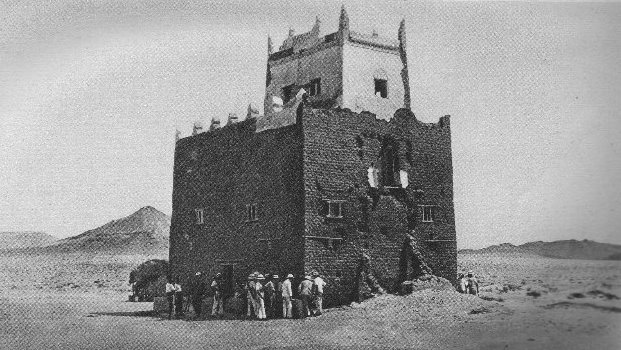|
Transitional Federal Charter
The Transitional Federal Charter of the Somali Republic (TFC) was the principle organizing document of Somalia. Written and approved in February 2004, it represented one of the Transitional Federal Institutions (TFIs). The other TFIs included the Transitional Federal Parliament (TFP), which was the legislative branch, and the Transitional Federal Government (TFG), the TFI's executive wing. The TFC was distinct from the national constitution, which was distinguished as a separate document (Chapter 4, Article 11, Section 3(a)). On 1 August 2012, an 825-member national constituent assembly approved a new provisional constitution by a landslide of 96% for the Federal Republic of Somalia. Chapter 1 The Charter's first Chapter establishes the Transitional Federal Government as the sovereign government of Somalia (Article 1), and gives the government supremacy of law over the nation (Article 3). It defines Somalia in Article 3 as having the following borders: (a) North; Gulf of Ade ... [...More Info...] [...Related Items...] OR: [Wikipedia] [Google] [Baidu] |
Somalia
Somalia, officially the Federal Republic of Somalia, is the easternmost country in continental Africa. The country is located in the Horn of Africa and is bordered by Ethiopia to the west, Djibouti to the northwest, Kenya to the southwest, the Gulf of Aden to the north, and the Indian Ocean to the east. Somalia has the longest coastline on Africa's mainland. Somalia has an estimated population of 18.1 million, of which 2.7 million live in the capital and largest city, Mogadishu. Around 85% of Somalia's residents are ethnic Somali people, Somalis. The official languages of the country are Somali language, Somali and Arabic, though Somali is the Languages of Somalia, primary language. Somalia has historic and religious ties to the Arab world. The people in Somalia are mainly Muslims, following the Sunni Islam, Sunni branch.. In antiquity, Somalia was an important commercial center. During the Middle Ages, several powerful Somali empires dominated the regional trade, including th ... [...More Info...] [...Related Items...] OR: [Wikipedia] [Google] [Baidu] |
Somali Language
Somali is an Afroasiatic languages, Afroasiatic language belonging to the Cushitic languages, Cushitic branch, primarily spoken by the Somalis, Somali people, native to Greater Somalia. It is an official language in Somalia, Somaliland, and Ethiopia; one of the two national languages in Djibouti; and a recognised minority language in Kenya. Somali is officially written in the Latin script (Somali Latin alphabet), with the Arabic script (Wadaad's writing) and several local scripts (Osmanya script, Osmanya, Kaddare script, Kaddare and Gadabuursi Somali Script, Borama scripts) being informally used.Lewis, I.M. (1958)The Gadabuursi Somali Script ''Bulletin of the School of Oriental and African Studies'', University of London, Vol. 21, pp. 134–156. Classification Somali is classified within the Cushitic branch of the Afroasiatic family, specifically, Lowland East Cushitic languages, Lowland East Cushitic in addition to Afar language, Afar and Saho language, Saho. Somali is the bes ... [...More Info...] [...Related Items...] OR: [Wikipedia] [Google] [Baidu] |
Referendum
A referendum, plebiscite, or ballot measure is a Direct democracy, direct vote by the Constituency, electorate (rather than their Representative democracy, representatives) on a proposal, law, or political issue. A referendum may be either binding (resulting in the adoption of a new policy) or advisory (functioning like a large-scale opinion poll). Etymology 'Referendum' is the gerundive form of the Latin language, Latin verb , literally "to carry back" (from the verb , "to bear, bring, carry" plus the inseparable prefix , here meaning "back"Marchant & Charles, Cassell's Latin Dictionary, 1928, p. 469.). As a gerundive is an adjective,A gerundive is a verbal adjective (Kennedy's Shorter Latin Primer, 1962 edition, p. 91.) not a noun, it cannot be used alone in Latin, and must be contained within a context attached to a noun such as , "A proposal which must be carried back to the people". The addition of the verb (3rd person singular, ) to a gerundive, denotes the idea of nece ... [...More Info...] [...Related Items...] OR: [Wikipedia] [Google] [Baidu] |
Constitution
A constitution is the aggregate of fundamental principles or established precedents that constitute the legal basis of a polity, organization or other type of entity, and commonly determines how that entity is to be governed. When these principles are written down into a single document or set of legal documents, those documents may be said to embody a ''written constitution''; if they are encompassed in a single comprehensive document, it is said to embody a ''codified constitution''. The Constitution of the United Kingdom is a notable example of an ''uncodified constitution''; it is instead written in numerous fundamental acts of a legislature, court cases, and treaties. Constitutions concern different levels of organizations, from sovereign countries to companies and unincorporated associations. A treaty that establishes an international organization is also its constitution, in that it would define how that organization is constituted. Within states, a constitution ... [...More Info...] [...Related Items...] OR: [Wikipedia] [Google] [Baidu] |
Census
A census (from Latin ''censere'', 'to assess') is the procedure of systematically acquiring, recording, and calculating population information about the members of a given Statistical population, population, usually displayed in the form of statistics. This term is used mostly in connection with Population and housing censuses by country, national population and housing censuses; other common censuses include Census of agriculture, censuses of agriculture, traditional culture, business, supplies, and traffic censuses. The United Nations (UN) defines the essential features of population and housing censuses as "individual enumeration, universality within a defined territory, simultaneity and defined periodicity", and recommends that population censuses be taken at least every ten years. UN recommendations also cover census topics to be collected, official definitions, classifications, and other useful information to coordinate international practices. The United Nations, UN's Food ... [...More Info...] [...Related Items...] OR: [Wikipedia] [Google] [Baidu] |
Puntland
Puntland is an autonomous state that considers itself to be part of Somalia, despite not accepting the legitimacy of Somalia's current governing administration. It was formed in 1998, and was a federal member state of Somalia from its founding until 2024. Puntland is located northeast of Somalia and east of Somaliland. Its capital is the city of Garoowe in the Nugal region. The state had a population of 4,334,633 in 2016. Puntland is bordered by Somaliland to its west, the Gulf of Aden in the north, the Guardafui Channel in the northeast, the Indian Ocean in the southeast, Somalia, more specifically the central Galmudug region in the south, and Ethiopia in the southwest. There are several major geographical apexes in Puntland, including the Cape Guardafui, which forms the tip of the Horn of Africa, Ras Hafun the easternmost place on the entire African continent, and the beginning of the Karkaar mountain range. The name "Puntland" is derived from the Land of Punt me ... [...More Info...] [...Related Items...] OR: [Wikipedia] [Google] [Baidu] |
Districts Of Somalia
Somalia is officially divided into 18 administrative regions (''gobollo'', singular ''gobol''). These are in turn subdivided into seventy-two districts (plural ''degmooyin''; singular ''degmo''). On a ''de facto'' basis, northern Somalia is now divided up among the autonomous region of Puntland In central Somalia, Galmudug is another regional entity that emerged south of Puntland. Regions and districts Historical divisions Pre-independence In 1931, Italian Somaliland consisted of seven commissariats."Regions of Somalia" . ''Statoids''. Retrieved 20 February 2011. * Alto Giuba * Alto Uebi-Scebeli * Basso Giuba * Basso Uebi-Scebeli * Migiurtinia * Mogadiscio * Mudugh Following the 1935–36 |
Regions Of Somalia
Countries' first-level (top-level) administrative divisions. ''Please note:'' This category's subcategories contain articles on each subdivision of the country while each directly included article considers the subdivisions structure of the country. ''Further note:'' This category's subcategories are indexed according to country, but its directly included articles are not: they are indexed by type of subdivision (provinces, counties, etc). Articles with non-English subdivision terms in their titles either have their redirects indexed instead, or are indexed by the common English translation for said subdivision. This facilitates comparisons between similarly named subdivisions. {{CatAutoTOC Administrative divisions by level and country, 1st-level ... [...More Info...] [...Related Items...] OR: [Wikipedia] [Google] [Baidu] |
Federal Government
A federation (also called a federal state) is an entity characterized by a political union, union of partially federated state, self-governing provinces, states, or other regions under a #Federal governments, federal government (federalism). In a federation, the self-governing status of the component states, as well as the division of power between them and the central government, is Constitution, constitutionally entrenched and may not be altered by a unilateral decision, neither by the component states nor the federal political body without constitutional amendment. Sovereign power is formally divided between a central authority and a number of constituent regions so that each region retains some degree of control over its internal affairs. Overriding powers of a central authority theoretically can include the constitutional authority to suspend a constituent state's government by invoking gross mismanagement or civil unrest, or to adopt national legislation that override ... [...More Info...] [...Related Items...] OR: [Wikipedia] [Google] [Baidu] |
Sharia
Sharia, Sharī'ah, Shari'a, or Shariah () is a body of religious law that forms a part of the Islamic tradition based on Islamic holy books, scriptures of Islam, particularly the Quran, Qur'an and hadith. In Islamic terminology ''sharīʿah'' refers to immutable, intangible divine law; contrary to ''fiqh'', which refers to its interpretations by Ulama, Islamic scholars. Sharia, or fiqh as traditionally known, has always been used alongside urf, customary law from the very beginning in Islamic history; has been elaborated and developed over the centuries by fatwa, legal opinions issued by mufti, qualified jurists – reflecting the tendencies of Schools of Fiqh, different schools – and integrated and with various economic, penal and administrative laws issued by Muslims, Muslim rulers; and implemented for centuries by Qadi, judges in the courts until recent times, when secularism was widely adopted in Islamic societies. Traditional Principles of Islamic jurisprudence, theory o ... [...More Info...] [...Related Items...] OR: [Wikipedia] [Google] [Baidu] |
Islam
Islam is an Abrahamic religions, Abrahamic monotheistic religion based on the Quran, and the teachings of Muhammad. Adherents of Islam are called Muslims, who are estimated to number Islam by country, 2 billion worldwide and are the world's Major religious groups, second-largest religious population after Christians. Muslims believe that Islam is the complete and universal version of a Fitra, primordial faith that was revealed many times through earlier Prophets and messengers in Islam, prophets and messengers, including Adam in Islam, Adam, Noah in Islam, Noah, Abraham in Islam, Abraham, Moses in Islam, Moses, and Jesus in Islam, Jesus. Muslims consider the Quran to be the verbatim word of God in Islam, God and the unaltered, final revelation. Alongside the Quran, Muslims also believe in previous Islamic holy books, revelations, such as the Torah in Islam, Tawrat (the Torah), the Zabur (Psalms), and the Gospel in Islam, Injil (Gospel). They believe that Muhammad in Islam ... [...More Info...] [...Related Items...] OR: [Wikipedia] [Google] [Baidu] |






